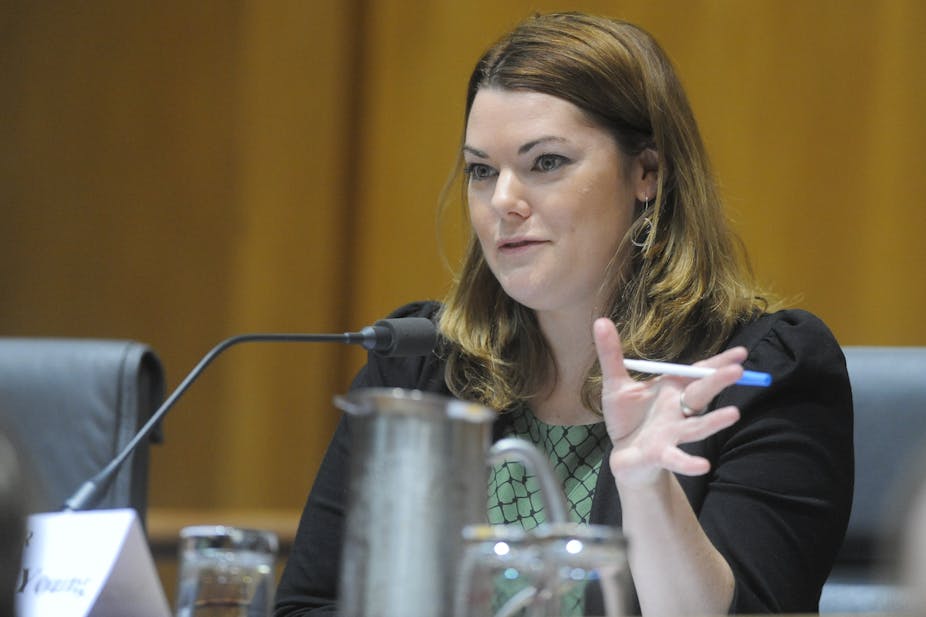The Senate has defeated a move to recognise same-sex marriages performed abroad, after a personal attack on Greens Senator Sarah Hanson-Young over the bill.
The Coalition opposed the bill, which was defeated by 44-28. Labor had a conscience vote.
Liberal Senator Sue Boyce broke ranks with the Coalition to vote for the bill, saying it “advances the cause of same-sex marriage in Australia.”
Hanson-Young, sponsor of the private member’s bill, said it was a half way house - “a step towards marriage equality”.
She said that it was not just the morally right thing to do to recognise these marriages, but the right thing in order to clear up a bureaucratic nightmare.
It was about giving these couples certainty and security in putting their lives together, she told the Senate. Australian couples could fly to New Zealand, and have New Zealand give legal recognition to their relationship, only to have to check in their marriage at the customs gate on their return to Australia.
But shadow attorney-general George Brandis said that it would be a “preposterous” result if Australian law recognised same sex marriages performed overseas when such marriages were banned in Australia.
Brandis unleashed a bitter personal attack on Hanson Young, accusing her of being “puffed up with moral vanity” in claiming her view was the only legitimate one on the issue. She was guilty of posturing self righteousness, he said.
Finance Minister Penny Wong, who is in a same sex relationship and has a young child, said that this bill was one aspect of a broader principle - equality for Australians.
“Pursuing marriage equality is part of an ongoing struggle for a more equal Australia,” Wong said.
DLP Senator John Madigan said the bill was a backdoor attempt to force same-sex marriage onto Australians.
He would be introducing a bill for a referendum to alter the constitution to provide that marriage was between a man and a woman.
“I’m saying ‘let the people decide,’”, he said. Parliament could legislate on all sorts of things but not legislate the conscience of the nation.
But Boyce said the idea of putting this in the constitution was “disgusting and immoral”.
She said one in 200 people was born with both male and female attributes, so we needed to get beyond the binary idea of a man or a woman.

